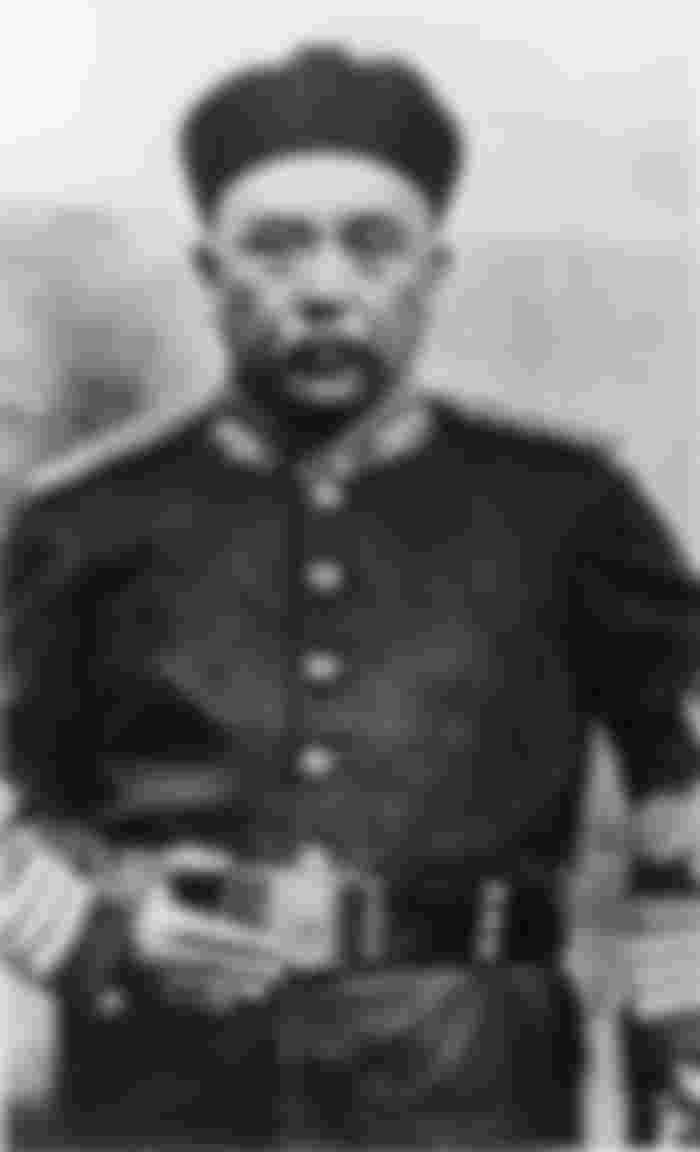I don't know how many of you really knew that there was a civil war in China?! Actually, there were more; it depends how you define what is a civil war. I did not know, for example, and I believe that I'm very well aware of what is happening in the world. This time, I was completely out!
There are tens or maybe hundreds of definitions of a civil war throughout the entire academic world, but I will try to make it as simple as possible, without using complicated terms or complex phrases to define it. A civil war is a conflict that outburst within a certain country where parties involved are made up of citizens of that respective country. I hope I made myself understood!
Going back to today's post, I will talk about China, actually about the Chinese Civil War. There will be three posts and all will be posted in the next couple of days.

The Chinese Civil War - a name that is encapsulating as it is generic.
From 1927 to 1950, China was locked in a period of civil strife. It had been for a lot longer, actually, but specifically, this time the two main warring parties were the Nationalist Kuomintang Party and the Communist Party.
Prior to this, China has been a land ruled for millennium by long-running dynasties. One that's very own religious and political doctrine justified the existence of these dynasties. However, it would only take half a century to completely change that. For a country that had twice the population of today's United States and that was twice the size of today's India, to go from an almost feudalistic, regionalist mess to an industrial, centralized powerhouse, it was quite impressive, to say the least.

So, how can a couple revolutions be just so revolutionary? - this is exactly what I am going to cover in these posts.
In the 19th century, China was ruled by the Qing dynasty. Same for the 18th and 17th. However, it was in the 19th that the focus of Western colonists and merchants turned to China and the Qing weren't too harmonious with this development, choosing to close themselves off from them.
Still, the British, in the Opium War would pioneer the path to breaking open the gates of the Middle Kingdom, leading to many European powers, the U.S. and even Japan carving up the humiliated empire into spheres of influence and seizing control of trade where they could.
Foreign tycoons would rein over the ports they resided, kept in steady supply by impoverished Chinese workers subservient to them. This was deemed unacceptable by many. But what could the Qing do?!

Some would answer that question by saying "Forget the Qing!, turning their own regions into more self-sufficient entities. This regionalism would only continue to degrade Qing influence. The other sum, would demand modernization and self-strengthening, only for the incompetent and corrupt Qing to fail them which was too obsessed with its own dynastic confusion to create any real change.
After the Sino-Japanese War of 1895 that saw seize Chinese territory and title of "the Asian power", did this frustration manifest as a fervent anti-foreign sentiment. That sentiment would further manifest as the Boxer Rebellion. The Boxers looked to relieve the days of a mighty Qing, but the Imperial Court was split on to suppress or support such a radical movement, negligently letting the foreigners take matters into their own hands and occupy Beijing without even a declaration of war.
The 20th century dawned with a Qing that had failed to modernize, failed to strengthen and failed to improve; simply failed to Westernize. In 1908, the two-year-old Pu-Yi rose to the imperial throne and, of course, under a two-year-old, China could only continue to stagnate.
Exiled revolutionary, Sun Yat-Sen sau this as yet another chance for him to finally see off the Qing that let a nation decay. He held a long history of failed revolts, so some held doubts. But the Western-educated man was so adamant to see his three principles, nationalism, democracy and livelihood, applied to create a better China. So, there was the Qin-Lian uprising, Hekou uprising, Mapaoying uprising, Gengxu New Army uprising, Second Guangzhou uprising and then an uprising so unexpected that even the people doing the uprising weren't expecting it.

Wuchang Uprising
In 1911, the Wuchang uprising rose up. Sun Yat-Sen, at the time, was still in exile and the revolutionaries had started before everyone was ready. It seemed a tad bleak. But, for the first time, much of the military joined their cause. This revolt spread quickly, the provinces successively breaking away from the Imperial Court and sending the Qing into a bit of a tizzy.
With no time to spare, province delegates had gathered into Nanjing to form a Chinese republic, inviting Sun Yat-Sen to be China's first president. As a consequence, one might expect a war to be fought between President Sen and Emperor Pu-Yi, but the fact of the matter was, despite each claiming power, the only person that had power was whoever held the biggest army, which was general Yuan Shikai.

Yuan served the Qing, but when Sen came to him offering his presidency if he were to force Pu-Yi's abdication, the general was more than happy to switch sides, accomplishing his end by February of 1912 and taking position as the president of the new Republic of China. However, the man lacked Sen's refined political philosophy and he was more keen on a direct military dictatorship method, meaning that many of the problems of the uprising had aimed to fix remained.

Sen decided he could indulge a democratic approach, forming the Kuomintang political party in Yuan's Parliament. However, the President say opposition as an affront and Sen ended up once again exiled in 1913. Yuan then proceeded to blunder through politics, heavy-handedly trying to fix China's disunity, only making it worse. The tip-top of his tosh came when he declared himself Emperor in 1916.
This should be an end point in our story and tomorrow I will come back with the next. See you soon!
My successful faucets!
PipeFlare & Hive ZCash - ZEC with tier 4 referral program
FreeCryptos: (DASH), (TRX), (ETH), (Cardano), (BNB), (LINK), (NEO), (LTC) & (BTC)
Stakecube (over 20 single click faucets per day)
Get Maiar for free! The future of money: powered by Elrond!
Join DeFi and get $30 of DFI. Join CakeDeFi now!!
Try Celsius and earn $20 for free.






Will this series end with 2020 Covid-19?